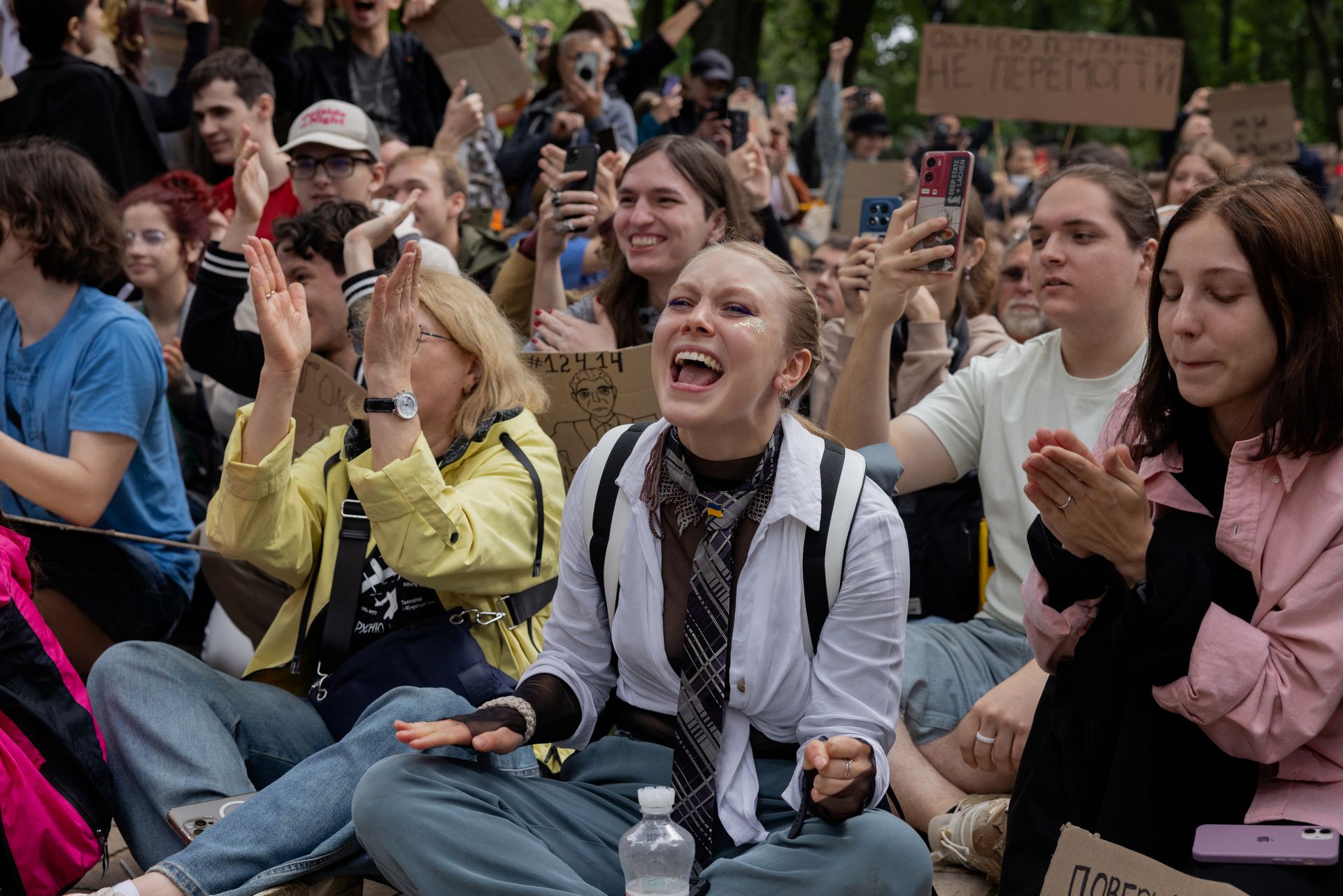Exclusive: After international pressure, Ukraine's government likely to appoint economic watchdog head next week

Ukraine’s economic crimes watchdog nominees said he is likely to be appointed next week following international pressure on the government to accept his candidacy.
Oleksandr Tsyvinsky, who was nominated by an independent selection committee on June 27, agreed to take a polygraph test to prove that he has no ties to Russia after a what he called a "constructive" phone call with Prime Minister Yuliia Svyrydenko on Aug. 1, Tsyvinsky told the Kyiv Independent.
The prime minister's sudden about-face follows weeks of controversy over his appointment after the government rejected his candidacy over alleged Russia ties early last month, a claim critics have called baseless. Pressure to appoint Tsyvinsky domestically and from European partners only grew after Kyiv moved to curtail the independence of Ukraine's key anti-corruption agencies last week.
"The truth is that there is no compromising information. We agreed on a method that is acceptable for resolving all questions that could be there, so that next week, as I understand it, we can finish this story," he said.
Svyrydenko announced on her Telegram channel that she had spoken to Tsyvinsky about taking the polygraph test, saying it would "rid the situation of any manipulations."
"I expect that as early as next week, we will be able to make the appropriate decision that will allow the bureau’s work to be renewed and will be a significant step toward a positive reset in relations between the state and business," she wrote.
Tsyvinsky said that while he believes he will take the position as head of the Economic Security Bureau in the middle of next week, on Aug. 6 or 7, he is not celebrating yet as the paperwork still needs to be signed.
The government initially rejected Tsyvinsky as the new head of the bureau after Ukraine's security service sent a letter to the Cabinet of Ministers noting his estranged father had Russian citizenship — information the selection committee was already aware of.
Tsyvinsky says he has not spoken to his father in years and the committee didn’t raise it as a concern, considering Tsyvinsky had already passed vetting processes. He also had two decades of experience working in law enforcement and a decade of working as a detective at the National Anti-Corruption Bureau (NABU) — the same agency that was targeted in last week's legislation undermining its independence.
In addition to calling the decision politically motivated, anti-corruption activists and opposition lawmakers also pointed out it was in violation of the laws creating the bureau, which stipulate that the government has 10 days to appoint the winner of the competition.
International partners began putting pressure on the government to adhere to the committee's decision to appoint Tsyvinsky by the July 31 deadline set by set by the International Monetary Fund (IMF).
On the day of the deadline, the European Commission urged Svyrydenko to appoint Tsyvinsky as director in a letter seen by the Kyiv Independent. The EC said there was no real information that Tsyvinsky was a risk.
Simultaneously, the EC noted the issue was one of the demands set by anti-corruption protestors over the last week. Protests began on July 22 when the government ignited outrage by passing a law stripping two anticorruption bodies of their independence, which it overturned on July 31 in response to the backlash.
Created in 2021 to investigate economic crimes, the bureau has been accused of inefficiency and political meddling.
In addition to a requirement under its IMF loan program, reforming the bureau is also part of Ukraine's broader reform commitments under its EU accession process.
Polygraph tests have become a common move of President Volodymyr Zelensky’s administration in response to various threats, despite having questionable results. A new bill that passed on July 31 to restore independence to anticorruption bodies included mandatory polygraph tests every two years for employees with access to state secrets, to clear out Russian influence.
Anti-corruption watchdogs previously told the Kyiv Independent there is little evidence that Russian influence was an issue in the two targeted agencies: NABU and the Specialized Anti-Corruption Prosecutor (SAPO).
Yana Prots contributed reporting to this article.












